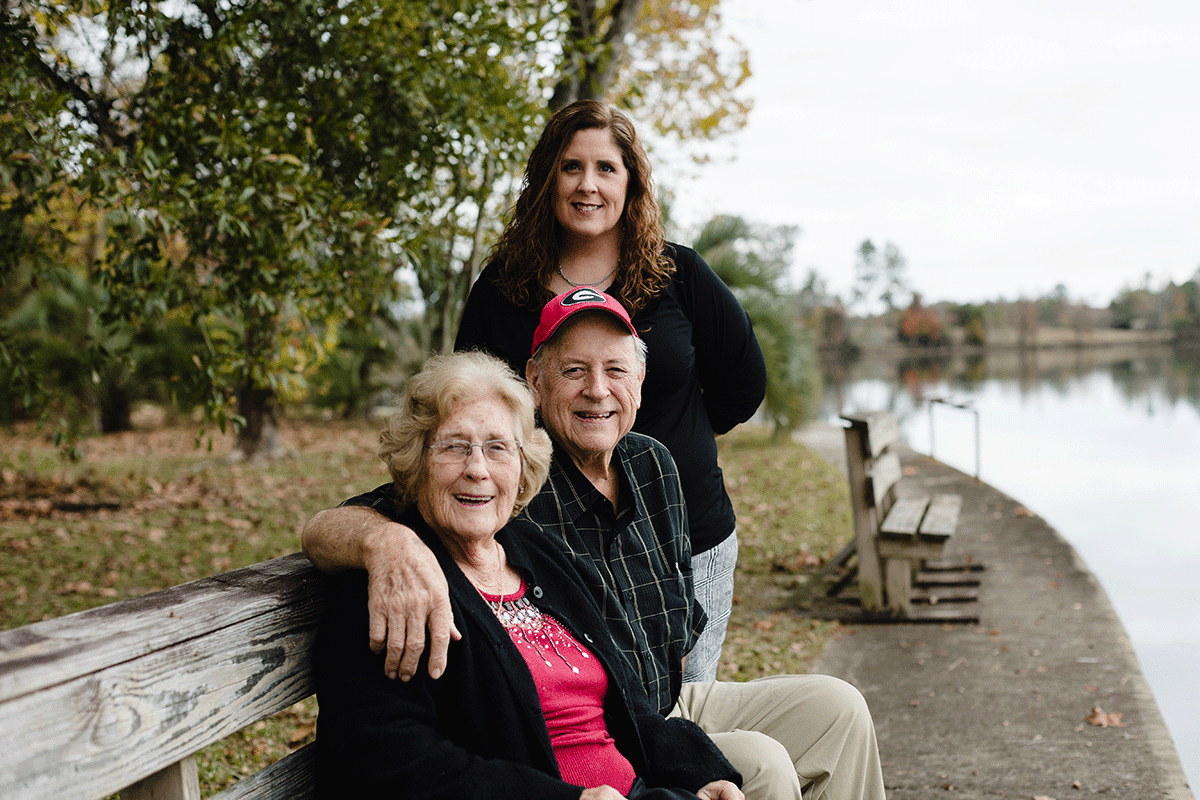Bobby Bobo, a native of Hawkinsville, Georgia, visited his cardiologist and received some unwanted news: he had multiple blockages in his heart which appeared to be calcified and his only option was to have open heart surgery – not his first choice of treatment.
The former cow farmer, Vietnam veteran and cancer survivor decided to pursue other options.
“I didn’t want open heart surgery if I didn’t have to have it,” said Bobby. “I’m 78, and I was worried about the risks of anesthesia – so I asked my daughter to look on the internet to see if there were any other options.”
Finding Georgia Heart Institute 186 Miles Away
Bobby’s daughter, Betsy, got to work. A nurse herself, she was familiar with the kind of procedures her father needed to relieve the blockages in his arteries. Her Google searches led her to Georgia Heart Institute, about a three-hour drive from home.
“I called and asked for the next available appointment for a consultation at Georgia Heart Institute, and they told me it would be a few weeks,” recollected Betsy. “Knowing that my dad was scheduled for open heart surgery in Macon the following week, I asked if there were any cancelations. They had one for the next day! So, we packed up and headed for Gainesville for a second opinion.”
Bobby met with interventional cardiologist Nima Ghasemzadeh, MD, FACC, who scheduled more tests and explained that open heart surgery was not the only option. Instead, Bobby was scheduled for a minimally invasive procedure using a catheter inserted at the wrist to clear the calcifications and place two stents—a far less invasive procedure that would happen that same week and wouldn’t involve anesthesia.
The Interventional Cardiology team at Georgia Heart Institute successfully completed the procedure without complication – an exceptional patient outcome the Bobo family didn’t know they could have.
Innovative Treatment & Compassionate Care
The major benefit of a minimally invasive procedure over open-heart surgery is the recovery time.
“Mr. Bobo was in the hospital for just one day after his procedure,” said Dr. Ghasemzadeh. “With open heart surgery, you’re looking at five to seven days in the hospital, plus four to six weeks to recuperate.”
Bobby was awake during the procedure, avoiding any risks from anesthesia as well.
“I remember sitting in the waiting room while Dad was in the cath lab,” said Betsy. “When the nurse escorted me into Dad’s room, I was so surprised to see Dad awake. It just made his recovery so much shorter and easier.”
“Everyone from the receptionists to the nurses, to Dr. Ghasemzadeh, to the recovery team — everyone was just so nice,” remembered Bobby. “I’ve never seen anything like it.”
Back to Normal
“Dad stayed in the hospital one night before we took him back home to Hawkinsville,” said Betsy. “He was back to his normal activities after a couple of days.”
Dr. Ghasemzadeh had such an impact on Bobby that he’s asked for him to continue to be his cardiologist. Even though he lives hours away, Bobby can have virtual visits with Dr. Ghasemzadeh when needed.
“We’re proud to offer telehealth appointments to patients who live farther away,” said Dr. Ghasemzadeh. “Of course, we’ll have to schedule labs and tests to be done at a local hospital, but we can offer convenient access to Georgia Heart Institute’s excellent heart care from the comfort of the patient’s home. They don’t have to worry about making multiple long trips to receive the quality patient experience we’re known for. For patients like Mr. Bobo, we now have a new Center for Complex Coronary Disease that specializes in high-risk procedures and care for those complicated cases.”
“I’m just so thankful for Dr. Ghasemzadeh’s help,” said Betsy. “He didn’t push the less invasive procedure – he simply gave my dad his options and helped us to understand. In the end, the less invasive procedure saved my dad a lot of pain and suffering. It saved my dad’s life.”
“The care I received at Georgia Heart Institute was top-notch,” said Bobby. “I’m so thankful for Dr. Ghasemzadeh and all the nurses and staff – they were such a blessing to me.”
Learn More
Learn more about the life-improving and life-saving care of the Complex Coronary Disease Center or call 770-219-4044 to speak to a specialized program coordinator.


